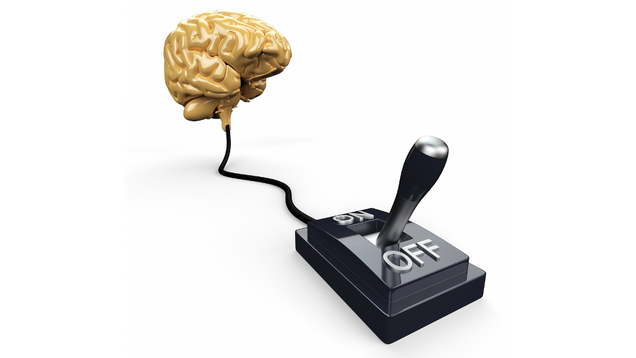
While performing deep brain surgery on a woman with epilepsy, neuroscientists from George Washington University stimulated an area of her brain that unexpectedly — and temporarily — caused her to lose awareness. It's a discovery that could shed light on the very nature of consciousness itself.
"We describe a region in the human brain where electrical stimulation reproducibly disrupted consciousness," write the scientists in their study. It's an important finding as the "neural mechanisms that underlie consciousness are not fully understood." No doubt, consciousness is still a profound mystery, so much so that we don't know how it arises — or how it switches off.
Mohamad Koubeissi and his team were using deep brain electrodes to record signals from different brain regions to figure out where the woman's seizures were coming from. They placed one electrode near a part of the deep brain called the claustrum, an area that had never been stimulated before.
The claustrum is a thin and weirdly shaped sheet of neurons that's attached to the underside of the neocortex right smack-dab in the center of the brain. Though the precise role of the claustrum is not known, it's suspected to play a role in communication between the two hemispheres of the brain, specifically those regions that control attention. It works like a conductor in an orchestra, coordinating the cerebral cortex. But instead of synchronizing musicians, it synchronizes the timescale between various brain parts, resulting in the seamless quality of conscious experience.
Helen Thomson from New Scientist reports:
When the team zapped the area with high frequency electrical impulses, the woman lost consciousness. She stopped reading and stared blankly into space, she didn't respond to auditory or visual commands and her breathing slowed. As soon as the stimulation stopped, she immediately regained consciousness with no memory of the event. The same thing happened every time the area was stimulated during two days of experiments.To confirm that they were affecting the woman's consciousness rather than just her ability to speak or move, the team asked her to repeat the word "house" or snap her fingers before the stimulation began. If the stimulation was disrupting a brain region responsible for movement or language she would have stopped moving or talking almost immediately. Instead, she gradually spoke more quietly or moved less and less until she drifted into unconsciousness. Since there was no sign of epileptic brain activity during or after the stimulation, the team is sure that it wasn't a side effect of a seizure.Koubeissi thinks that the results do indeed suggest that the claustrum plays a vital role in triggering conscious experience. "I would liken it to a car," he says. "A car on the road has many parts that facilitate its movement – the gas, the transmission, the engine – but there's only one spot where you turn the key and it all switches on and works together. So while consciousness is a complicated process created via many structures and networks – we may have found the key."
An exciting discovery, to be sure. But a word of caution; the woman was missing part of her hippocampus, which was removed to treat her epilepsy, so she doesn't possess a "normal" brain. Clearly, these results need to be reproduced in others before we get too carried away with the findings.
Check out the entire report at New Scientist. And read the entire study at Epilepsy and Behavior: "Electrical stimulation of a small brain area reversibly disrupts consciousness".
Image: styleuneed.de/shutterstock.
Follow me on Twitter: @dvorsky
No comments:
Post a Comment